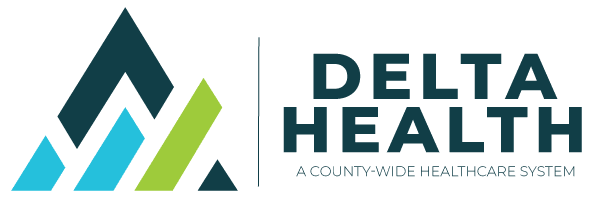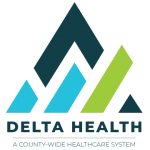Becky Ela, MSW, LCSW is the Director of Behavioral Health at Delta Health. All the information provided are guidelines. The bevavioral health information provided does not include all of the information important for patient use and should not be used as a substitute for professional advice. Your personal physician or healthcare provider should be consulted concerning any questions that you have.
Mental Health Month was established in 1949 to increase awareness of the importance of mental health and wellness in Americans’ lives, and to celebrate recovery from mental illness. Good mental health is essential for a person’s overall health. https://youth.gov/feature-article/may-national-mental-health-month
Mental health and emotional well-being focuses attention on our moods, how we handle stress, sleep, misuse of alcohol/ drugs food and other chronic mental health issues such as bipolar disorder and schizophrenia.
Trauma is the response to a deeply distressing or disturbing event that overwhelms our ability to cope, causes feelings of helplessness, diminishes our sense of self and our ability to feel a full range of emotions and experiences. Trauma takes form in all shapes and sizes. The event need not rise to the level of war, natural disaster, nor personal assault to affect a person profoundly and alter their experiences and how they interpret the world around them. Trauma is very subjective and it is important to bear in mind that it is defined more by its response than its trigger (integratedlistening.com/what-is-trauma).
Being a health care professional during the last 15 months has been stressful and traumatic for many. Anxiety, fear and burnout are all real factors among healthcare workers right now. Twenty-five percent of health care workers likely have PTSD according to a Yale University School of Medicine publication. Fifty percent of respondents likely have alcohol use disorder (medicine.yale.edu/news-article/30378).
In the integrated behavioral health realm, we spend a lot of time discussing coping skills and self-care. Why? Because if we don’t have healthy ways to cope with the stresses of life, if we don’t take time to care for ourselves, our mental health suffers.
Self-care is a phrase we often use and request that people find ways to take care of themselves. Essentially, self-care means: How do you relax and how do you rejuvenate in a healthy way?
Here are some ideas:
- Exercise: Go for a 20-30 min walk 5 times per week, go to the gym, hike on the weekend, ride your bicycle, jump on the trampoline with your kids, jump on the trampoline by yourself, throw a baseball/frisbee/football.
- Spend time outdoors: We know that being outside decreases our stress level because we become more engaged in our senses (sight, smell, sound, touch, taste) which is one of the most effective ways to combat stress and anxiety. Go fishing, X-country skiing, snowmobiling, spend time with animals, camp, garden, lie on the ground and look at the clouds/stars.
- Listen to music
- Read something fun
- Be with people who are supportive of you: Vent on the phone with someone, Facetime your friends, increase social interactions as contact with others makes us feel included. Our brains are wired to be in relationship with others, which is one of the reasons the pandemic is so challenging; We miss our peeps! Even those of us who are more introverted, we still need others!
- Engage in art: Draw, color, paint, ceramics, knit, crochet, sew
- Use your brain: Crossword puzzle, Soduko, jigsaw puzzles
- Limit: News, negative people, excessive alcohol, drugs and unhealthy food and too much time by yourself.
The past 15 months of COVID has demanded attention on our mental health as anxiety, isolation and substance issues have increased dramatically. There are many ways to get support for your own mental well-being. Delta Health has counseling available for their employees through TRIAD EAP. Delta Health staff can see one of our outpatient integrated behavioral health clinicians at our primary care clinics.
We have the Center for Mental Health 970.252.6220, Integrated Insights 970.201.1467 and Families Plus 970.874.0464. Colorado Crisis Partners has a 24/7 warm line that is available anytime 970.252.6220. The Crisis Stabilization Unit in Montrose offers short-term in patient mental health for people in a mental health crises. There are numerous private therapists in our community willing to support whatever behavioral health needs you may have.
Poor mental health does not go away, it simply takes a seat in the back of the room until we have to take notice and do something about it. Let May be a month where you do the things that foster your own mental health and emotional well-being. You are worth it!!



